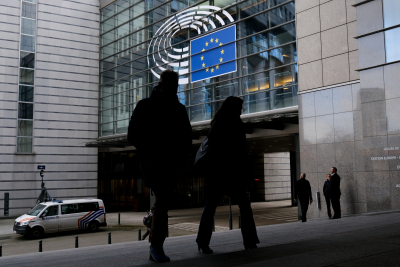A report released today by Transparency International EU (TI EU) has found weaknesses and a lack of clarity in the way that extractive companies report under current EU legislation. The report ‘Under the Surface’ assesses payments to governments made by oil, gas and mining companies in four countries of operation.
The cases analysed in the report are: Repsol in Bolivia; Tullow Oil in Equatorial Guinea; Vedanta in India; and a joint venture between Statoil,[i] BP and ENI (with ExxonMobil as an operator) in Angola.
“These cases show a number of significant weaknesses, both in the legislation itself and in the reporting practices of companies. This ultimately hinders achievement of the overall objective of enhancing public understanding of extractive companies’ activities and payments”. said Elena Gaita, Policy Officer for Corporate Transparency at Transparency International EU.
In 2013, the EU passed new transparency and accountability legislation requiring large oil, gas, mining and logging companies that are listed and registered in the EU to disclose their revenue payments to governments around the world on a country-by-country and a project-by-project basis.[ii] As the European Commission is currently reviewing this legislation, TI EU has looked at the evidence regarding implementation and enforcement this legislation.
Although the report finds that this legislation has considerably improved transparency in a traditionally opaque sector, however there are areas of concern and discrepancies in companies’ reporting and a lack of clarity in the legislation’s definitions and requirements.
Elena Gaita added “Some of the weaknesses we see are that companies report on their joint venture payments, their in-kind and royalty payments, and the taxes they paid in different ways. This shows that the current legislation has some areas for improvement in order for it to function more effectively.”
According to TI EU’s recommendations, the current EU legislative review is an excellent opportunity for the European Commission to clarify the requirements for companies on:[iii]
- Joint venture reporting
- Companies’ interpretation of payments categories
- Reporting of payments in kind
- Reporting on tax payments
- Identification of payments recipients
The full report is available here.
A methodology annex is available here.
A summary of the report is available here.
For more information and press enquiries, please contact:
Lucinda Pearson
+32 485 02 19 84
Notes to editors:
[i] In May 2018, Statoil changed its name to Equinor. As this report covers activities that pre-date the name change, we have continued to use Statoil throughout this report.
[ii] The EU Accounting Directive was adopted in 2013 and requires reporting of EU-registered companies’ payments to governments on a country-by-country and a project-by-project basis. This is the case for each country where a company operates and for each project to which payments have been attributed. There is also a similar provision in the EU Transparency Directive targeting publicly listed companies. At the beginning of 2017, the EU Accounting Directive was transposed into national law by all EU Member States. Two of those states – France and the UK – were early adopters, meaning that French and British companies published their first reports in 2016. The majority of European companies began reporting in 2017.
[iii] For all of Transparency International EU’s recommendations to the European Commission for its ongoing legislative review, see our briefing paper available here.




